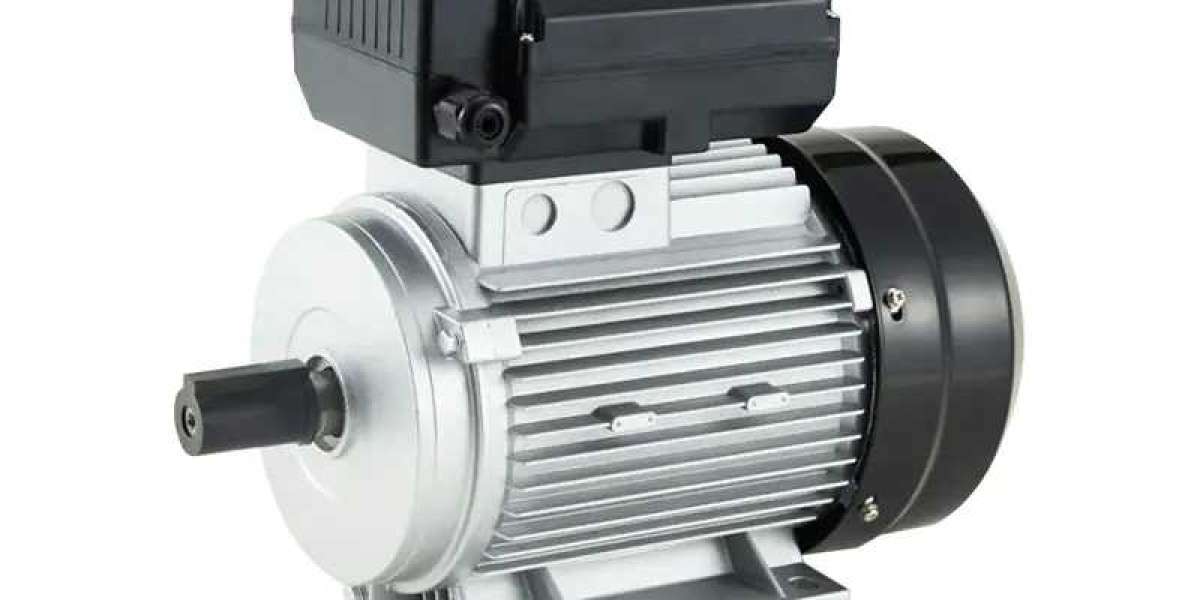In the world of motors, Monophase Asynchronous Motors (often referred to as single-phase asynchronous motors) offer a simple yet reliable solution for many household and light industrial applications. These motors are designed to operate with single-phase AC power, making them a common choice for equipment that requires moderate power output and efficiency. Unlike three-phase asynchronous motors, which require three-phase AC power, single-phase asynchronous motors are particularly suitable for smaller equipment due to their ease of use and cost-effectiveness.
How Does a Monophase Asynchronous Motor Work?
The Monophase Asynchronous Motor consists of two primary components: the stator and the rotor. The stator is wound with a single-phase winding that generates an alternating magnetic field when powered on. However, a single-phase magnetic field on its own is not capable of starting the rotor. To overcome this limitation, a starting device is typically used in these motors, such as a starting winding or a starting capacitor.
The starting winding is offset spatially from the main winding and connected through a capacitor, creating a phase difference to produce a rotating magnetic field. This rotating field initiates rotor movement. Once the motor reaches a certain speed, the starting device is disengaged—either through a centrifugal switch or an electronic switch—and only the main winding continues to operate, allowing the motor to run normally.
Advantages and Applications of the Monophase Asynchronous Motor
One of the main reasons Monophase Asynchronous Motors are widely used is their simplicity and low cost. They are easy to install and maintain, making them the go-to option for many household appliances, including fans, refrigerators, and washing machines. Additionally, their simple design allows them to be used in light industrial applications like small pumps and mechanical equipment.
However, like all technologies, single-phase asynchronous motors come with some trade-offs. These motors tend to have lower efficiency and a lower power factor compared to their three-phase counterparts. They also experience more vibration and noise during operation and generate lower starting torque. Despite these drawbacks, their affordability and reliability continue to make them a practical choice for light-duty applications.
Variations of the Monophase Asynchronous Motor
Several variations of the Monophase Asynchronous Motor are available to suit different needs. For example, the YC/YY Series Heavy-Duty Single-Phase Asynchronous Motor offers enhanced performance and durability for more demanding tasks, while the YL High Efficient Single Phase Dual-Capacitor Induction Motor and the ML Series Aluminum Housing Single-Phase Two-Value Capacitor Induction Motor provide improved energy efficiency and reliability for specific applications.
These variations reflect the continuous advancements in technology, which have improved the performance and efficiency of single-phase asynchronous motors over the years. Modern motors now offer higher efficiency, better starting capabilities, and increased reliability, addressing the limitations traditionally associated with older models.
The Future of Monophase Asynchronous Motors
Despite their lower starting torque and efficiency issues compared to three-phase motors, single-phase asynchronous motors remain a popular choice for many light-duty applications. As technology continues to evolve, the reliability, performance, and energy efficiency of these motors are expected to improve, allowing them to meet an even wider range of applications.
With growing demand for energy-efficient solutions and the shift toward more eco-friendly products, the Monophase Asynchronous Motor is poised to play a significant role in powering a variety of small and medium-sized equipment. Whether it's for household appliances or light industrial machinery, these motors offer a practical and cost-effective solution for many manufacturers and end-users alike.








